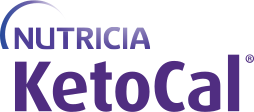Variations of the medical ketogenic diet for epilepsy can help both children and adults improve their seizure control
The classic medical ketogenic diet was the first diet known to effectively manage seizures. It can help to decrease and sometimes eliminate seizures for some patients with drug-resistant epilepsy (also known as intractable or refractory epilepsy). Over the years, variations of the classic ketogenic diet were developed.
These diet variations are usually less restrictive than the classic medical ketogenic diet but can still help patients with epilepsy achieve seizure control. Your healthcare team will work with you to find the option that works best for you and your family.
The main difference between the different types is their macronutrient ratio. However, all versions share commonalities.
- Restrict carbohydrate intake
- Increase fat intake
- Should only be used under strict medical supervision
It is important for patients with epilepsy to follow any dietary therapy exactly as recommended by their medical team.

Ketogenic Diet Variations
Low Glycemic Index Treatment (LGIT)
A type of diet that restricts high glycemic index foods
Medium Chain Triglyceride (MCT) Oil Diet
A diet that uses medium chain fats to help produce ketones
Modified Ketogenic Diet
A hybrid of the classic ketogenic diet and the modified Atkins®* diet
Low Glycemic Index Treatment (LGIT) Frequently Asked Questions
The low glycemic index treatment (LGIT) diet was developed in 2002 at the Massachusetts General Hospital as an alternative to the classic medical ketogenic diet. LGIT is a high-fat, low-carbohydrate diet that does not allow any high glycemic index foods to be eaten. About 60% of daily calories consumed will be from fat, 30% from protein, and 10% from carbohydrates (40 to 60 grams per day).
Only foods with a glycemic index of 50 or lower are allowed on this diet. This diet may help children and adults who have difficulties tolerating the high amount of fat intake on the other medical ketogenic diets.
Medium-Chain Triglyceride (MCT) Oil Diet Frequently Asked Questions
The medium-chain triglyceride (MCT) oil diet for epilepsy is a type of ketogenic diet that uses a fat supplement called MCT oil. MCT oil is a highly concentrated oil made up of medium-chain triglycerides (fats) extracted from either coconut oil or palm oil.
The medium-chain fats in the MCT oil are absorbed efficiently and will produce ketones faster compared to long-chain triglycerides. It can be a good diet choice for people who have a difficult time complying to the strict carbohydrate restriction on the classic medical ketogenic diet.
Modified Ketogenic Diet Frequently Asked Questions
The modified medical ketogenic diet for epilepsy is a hybrid of the classic medical ketogenic diet and the modified Atkins diet. This diet is less strict and more flexible than the classic medical ketogenic diet, but stricter than the modified Atkins diet. The modified ketogenic diet is a good choice for those with drug-resistant epilepsy and is widely used by adults with epilepsy in the United Kingdom.

A healthcare provider must monitor any modifications of the ketogenic diet to give it the best chance at working. Some ketogenic diet therapies can have side effects and might not be suitable for some children, which is why a doctor should always prescribe the appropriate keto diet. Following a medical ketogenic diet requires a high degree of collaboration between children, caregivers, and their healthcare team to manage it successfully.
References: 1. Kossoff, EH; Turner, Z.; Cervenka, MC; Henry-Barron, B. Ketogenic Diet Therapies for Epilepsy and Other Conditions, Seventh Edition. NY, NY: Springer Publishing; 2020;p.122-32. 2. Huttenlocher PR, Wilbourn AJ, Signore JM. Medium-chain triglycerides as a therapy for intractable childhood epilepsy. Neurology. 1971;21:1097-103. 3. Chomtho K, Suteerojntrakool O, Chomtho S. Effectiveness of medium chain triglyceride ketogenic diet in Thai children with intractable epilepsy. J Med Assoc Thai. 2016 Feb 1;99(2):159-65.
The content in this section is for informational or educational purposes only and does not substitute professional medical advice or consultations with your healthcare professional.
*Atkins is a registered trademark of Atkins Nutritionals, LLC and not affiliated with Nutricia North America.
